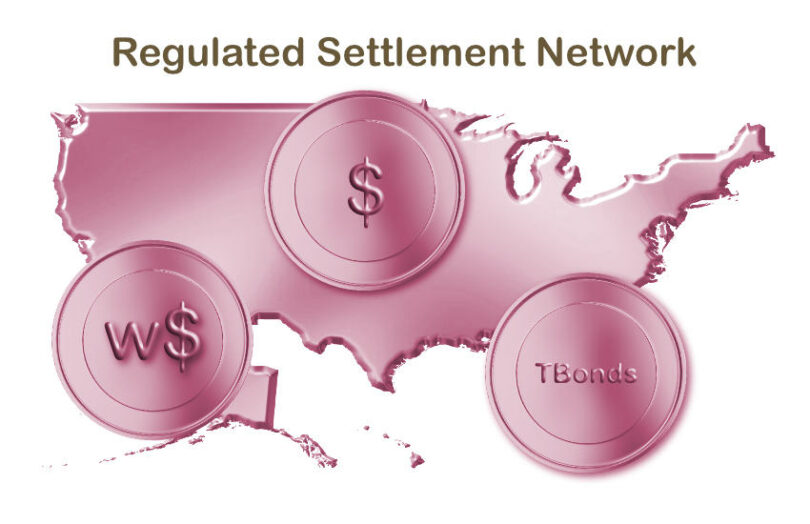Ten institutions completed simulated trials of the Regulated Settlement Network (RSN), exploring the use of a shared DLT network to settle tokenized transactions. It was an extension of previous trials of the Regulated Liability Network conducted last year, which included tokenized commercial bank money and tokenized central bank money on the same network. This time tokenized Treasuries and investment grade bonds were also on the shared ledger, enabling delivery versus payment for wholesale transactions. The trials also explored interoperability with external DLT networks.
SIFMA acted as coordinator for the institutions involved, which were Citi, J.P. Morgan, Mastercard, Swift, TD Bank N.A., U.S. Bank, USDF, Wells Fargo, Visa, and Zions Bancorp, led by SIFMA.
The group published three reports on the business, technology and legal aspects and will hold a virtual briefing on the RSN trials at 1pm Eastern Time.
The benefits of shared DLT ledgers
Shared institutional networks for tokenized assets are attracting attention for several reasons. If a tokenized Treasury is settled using central bank money on the same ledger, settlement risks are eliminated almost entirely. Smart contracts enable automation and straight through processing. And always-on networks allow for settlement outside of working hours and batch cut off times. That could prove especially convenient to assist overseas clients.
Five thoughtful use cases each demonstrated different benefits. While immediate settlement of Treasury transactions is risk free, institutions prefer net settlement to reduce cash demands. Today just 20% of repo transactions are centrally cleared, but new SEC rules will require a far larger proportion. Hence, one of the use cases ran a central counterparty (CCP) using the shared ledger that offered multiple settlement windows during the day. That allows firms to settle intraday and take advantage of netting.
While the RSN could become a major network, the group recognizes it won’t be the only DLT network. So other trials explored interoperability with non RSN networks, either using Swift orchestration or via direct APIs. For example, Mastercard has its Multi Token Network (MTN) which tested payments between two banks using MTN. The interbank settlement was performed on the Regulated Settlement Network using central bank money.
Meanwhile, RSN trials used the Canton DLT from Digital Asset. Deloitte assisted SIFMA in coordinating the project and Sullivan & Cromwell provided legal input. Contributors included BNY Mellon, Broadridge, the DTCC, ISDA, Tassat Group, and the non profit MITRE Corporation. The New York Innovation Center (NYIC) at the Federal Reserve Bank of New York participated as a technical observer.






